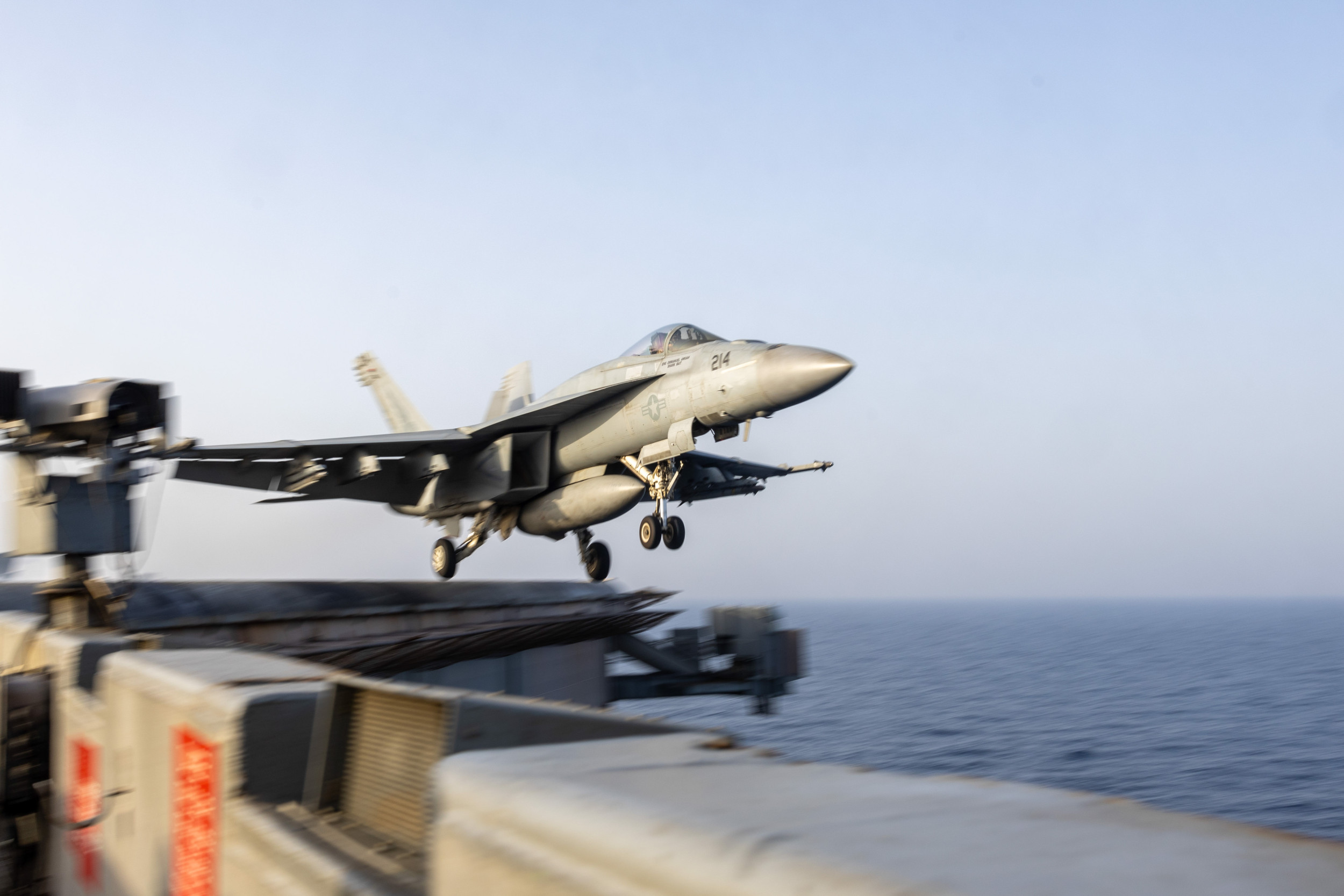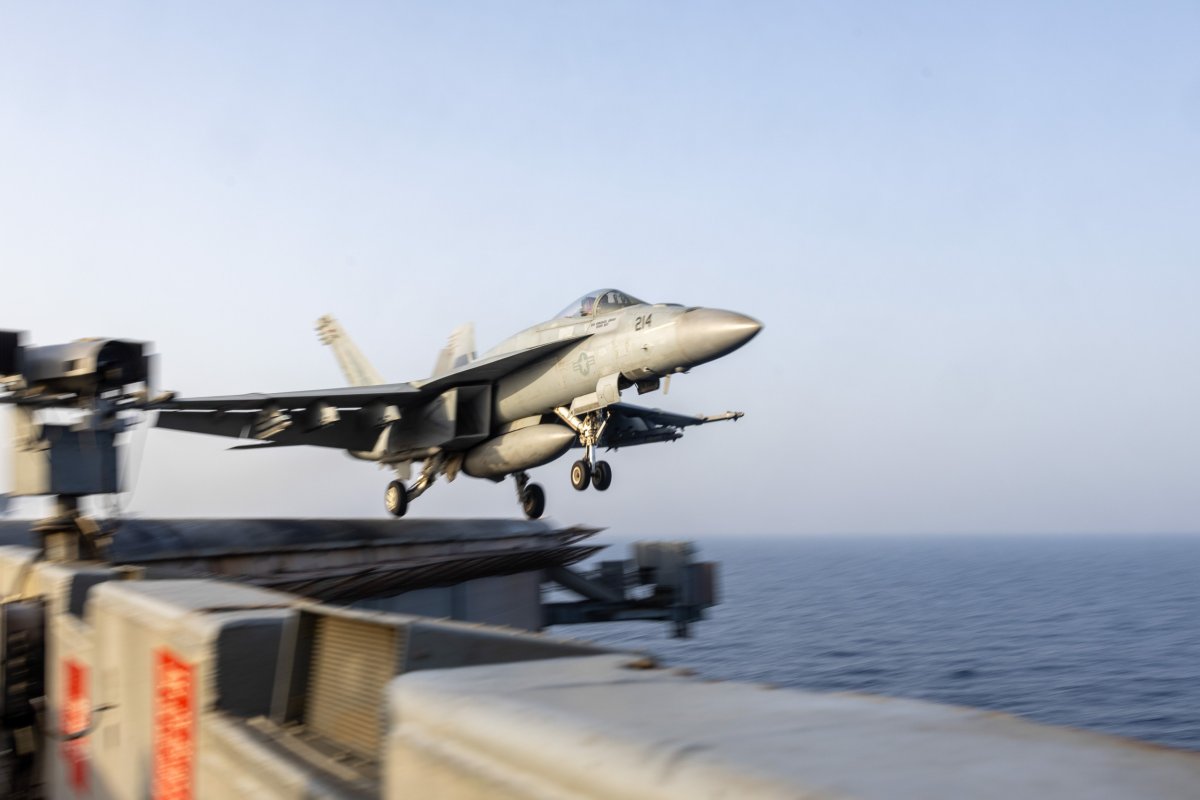
One month into a sustained U.S. air campaign ordered by President Donald Trump, the Iran-backed Houthi militant group in Yemen is defying Washington’s efforts to stop it by continuing to launch missiles against Israel and shipping in the Red Sea.
Newsweek has reached out to the U.S. Central Command and Houthi officials for comment.
Why It Matters
The air strikes on the Houthis were the first major military action ordered in Trump’s second administration and therefore seen as a test of will as well as military capabilities.
Attacks by the Houthis threaten to destabilize a critical route for global shipping, something the United States has said it seeks to defend. Striking them also sends a message to the militia’s backers in Iran and to U.S. regional allies, including Gulf states as well as Israel.
MOHAMMED HUWAIS/AFP/Getty Images
What To Know
The U.S. military has targeted Houthi missile sites, drone facilities, and command centers in Sana’a and across Yemen in an air campaign launched by Trump on March 15. Trump vowed to destroy the “Houthi barbarians” for threatening freedom of navigation.
Jets operating from the USS Harry S. Truman, joined by the USS Carl Vinson on April 10, have carried out dozens of daily airstrikes from the Red Sea, according to data from U.S. Central Command (CENTCOM) tracked by the Institute for the Study of War.
The USS Harry S. Truman (CVN 75) carrier strike group continues non-stop 24/7 operations against the Houthis despite the Houthis’ outlandish claims… https://t.co/l82bCGJXUn
— U.S. Central Command (@CENTCOM) April 11, 2025
Despite reports of significant damage—including the deaths of dozens of Houthi fighters—the recently redesignated terrorist group has shown little sign of retreat.
Known formally as Ansar Allah, the group has claimed to have continued multiple attacks aimed on the Harry S. Truman, although there have been no reports of damage. Military spokesperson Yahia Sarea said Sunday that at least four American MQ-9 Reaper drones had been shot down over the past two weeks.
The Houthis have also launched ballistic missiles at Tel Aviv and other parts of Israel, triggering alarm sirens in recent weeks, including on Sunday. Hamas has publicly backed these attacks. The Israel Defense Force reported intercepting missiles launched from Yemen, with no confirmed damage.
The U.S. has issued warnings to Iran over its continued support for proxy groups, while the Trump administration has moved to deepen alliances across the Gulf and Middle East. Iran denies direct control over the Houthis but has maintained a strong presence in Yemen in support of Ansar Allah for years.
“Paired with recent successive losses of other Iran proxies’ leadership, it may seem that the Houthis’ demise is a foregone conclusion. However, such an assumption underestimates the Houthis’ resilience, strategic adaptability, and deep-rooted influence within Yemen,” wrote Emily Milliken, Associate Director at the Atlantic Council’s N7 Initiative, last week.
The Houthis have survived a previous yearslong Saudi-led international coalition campaign launched in 2015. Since the Gaza war erupted following Hamas’s October 7, 2023, assault on Israel, the Houthis say they have been acting in solidarity with the Palestinians.
What People Are Saying
Nasruddin Amer, Head of Houthi-controlled Saba’a News Agency told Al-Jazeera Mubasher, translated from Arabic: “The American aggression against us, thanks to God, is an obvious failure. It did not stop drones or missiles launched from Yemen into the Israeli enemy’s territory. It could not re-open the naval blockade we have imposed on the Israeli enemy.”
U.S. Defense Secretary Pete Hegseth in Oval Office: “We’re not gona relent until the Houthis declare they will stop shooting at our ships. And we’ve been very clear that Iran as well they should not continue to provide support for the Houthis.”
Emily Milliken, Associate Director of Media and Communications for the N7 Initiative at the Atlantic Council’s Middle East Programs: “The challenges of targeting the rebels require recognition from the Trump administration that a purely military approach will not achieve Washington’s goal of complete annihilation.”
What Happens Next
The U.S. campaign against the Houthis will likely hinge on whether Washington is prepared to absorb the rising financial and strategic costs of the conflict, amid broader military confrontation risks with Iran over its nuclear program tensions.

Logan Mcguire, Official U.S. Navy photo
